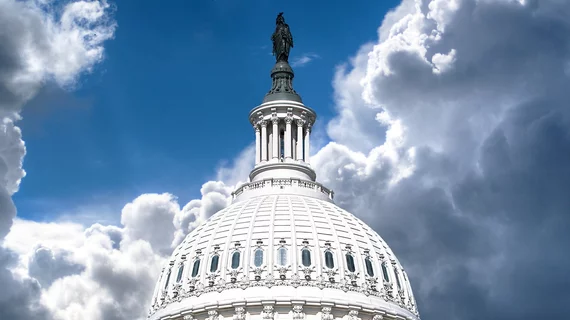ACR, coalition of nearly 50 provider groups urge Congress to quash controversial code update
The American College of Radiology is spearheading a drive by nearly 50 provider groups, urging Congress to help halt a controversial code update.
Healthcare Common Procedure Coding System code G2211 is a CMS-generated add on, meant to be billed with evaluation and management services. The Centers for Medicare and Medicaid Services’ intent was to help better reflect patient complexity, ACR noted in an Oct. 6 news update. However, “the code has been controversial since initially finalized for implementation in 2021.”
Given concerns from the provider community, Congress previously delayed implementation until next year. But the proposed 2024 Medicare Physician Fee Schedule includes G2211. According to CMS estimates, the code would be responsible for 90% of the overall budget neutrality reduction tied to the conversion factor.
Provider groups believe implementation of the code, and the impact it would have on certain specialties, is yet another example of how the Medicare payment system is “broken.”
“Implementing G2211 will penalize clinicians who cannot, or do not, use it with yet another budget-neutrality-related reduction to the CF,” ACR, the American Society of Neuroradiology, the Society of Interventional Radiology and the American Society for Radiation Oncology wrote to congressional leaders on Oct. 4. “We reiterate our commitment to work with you on permanent reform, including modifications to Medicare’s budget neutrality policy, the addition of an inflationary update to the MPFS and improvements in the Quality Payment Program,” they added later. “However, in the short term, we ask that you permanently halt the implementation of G2211 because it is significantly flawed and would give our clinicians the fiscal stability needed to ensure Medicare beneficiaries have access to a broad continuum of care in their communities.”
ACR et al. pointed to a 2020 analysis from Health Policy Alternatives. It estimated that, if the add-on code were implemented in 2021 as originally planned, diagnostic radiology would have faced the highest payment decrease at roughly 10.3% (vs. a 6.9% cut without code implementation). The college further supported its case by noting that both MedPAC and the AMA/ Specialty Society Relative Value Scale Update Committee believe G2211 is redundant. That’s because increased patient complexity was “already accounted for” in the outpatient E/M reevaluation implemented in 2021, ACR noted.
Read more about the advocacy push, and find the letters addressed to the House and Senate, in the college’s news update. Others signing the message included the American College of Emergency Physicians, American College of Radiation Oncology, American College of Surgeons, and the American Society of Anesthesiologists, among others.

